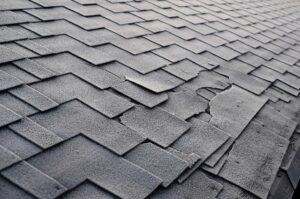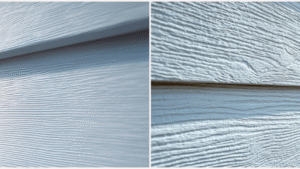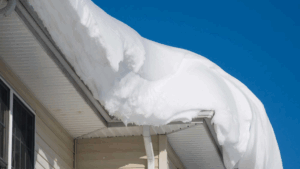Ever notice how after a sudden late-summer hailstorm, everything seems fine—until small leaks appear weeks later? That’s when spotting the signs of hail damage on a roof, scheduling a storm inspection in Missouri, and tackling the right roof repairs after a storm can prevent costly long-term problems.
In this post, we’ll cover:
- Why it’s critical to inspect your roof after a hailstorm in Missouri
- What damage typically looks like—and why it’s easy to miss
- What to prepare before any inspection or repair begins
- Step-by-step actions to assess and respond to hail impact
- Material risks, warranty info, and how we help locally
- Common questions from homeowners in the Warrenton area
Need reliable help fast? Freedom Roofing can help.
Why Post-Storm Checks Matter in Missouri
In Missouri, late summer often brings fast-moving storms that include hail, heavy rain, and strong wind. While your roof might look fine from the ground, the reality is: even small hailstones can compromise the surface in ways that only show up over time.
Here’s what that means:
- Signs of hail damage on a roof include dark bruising on shingles, missing granules, dented flashing or vents, or soft, sponge-like areas on the surface.
- A proper storm inspection in Missouri identifies subtle damage—especially on older roofs that may already have weak points.
- Timely roof repairs after a storm help prevent water intrusion, mold, and further structural problems when the next round of weather hits.
If left unchecked, even a brief storm can shave years off your roof’s lifespan.
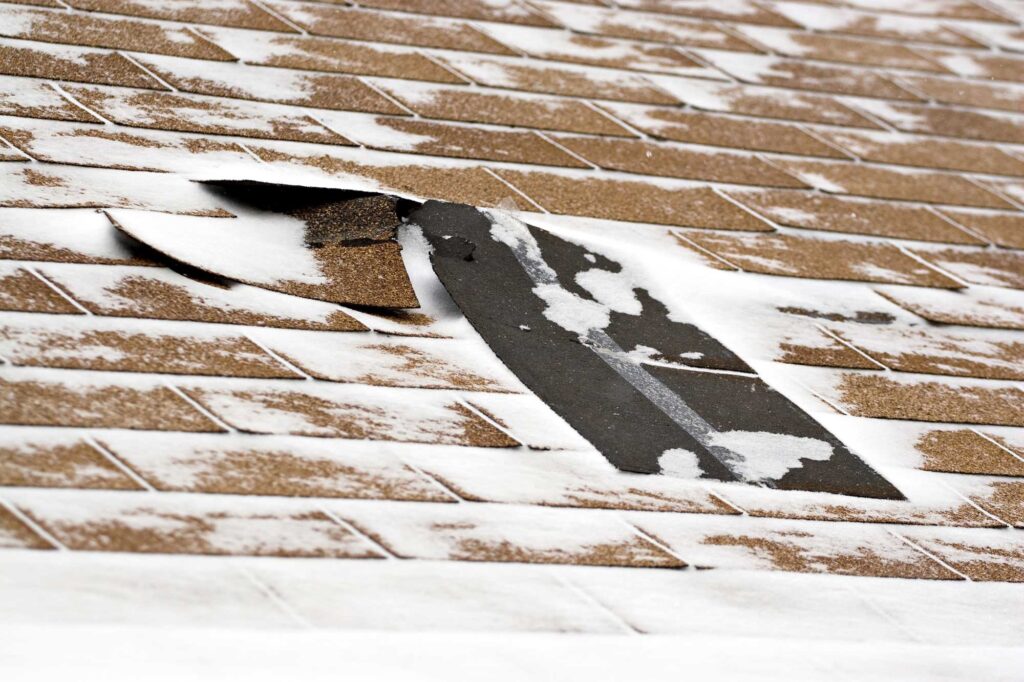
How to Prepare Before a Storm Damage Inspection
Once you understand the risks, here’s how to prepare before taking any action:
Clarify the Scope
Are you patching a few shingles or preparing for a full replacement? Quick fixes cost less up front, but some hail damage requires more extensive repair.
Understand Permits & Insurance
Missouri doesn’t require a statewide roofing license, but some cities do. You’ll also need to cover your own deductible—many insurers deny claims without documented storm damage.
Gather Materials & Tools
- Ladder, gloves, and safety gear
- Marker or chalk to note impact areas
- Camera or phone for photos
- Emergency tarping supplies if leaks are active
Know When to Call a Pro
Professional inspectors see damage most homeowners miss. That matters when documenting your claim or making a long-term fix.
How to Inspect and Repair Roof Damage After a Hailstorm
After you’ve gathered your tools and confirmed it’s safe to assess the roof, follow these key steps:
Step 1: Start at Ground Level
Check your gutters, siding, and downspouts for dents or signs of shingle debris. This often signals that your roof took a hit.
Step 2: Inspect the Roof Safely
If it’s safe to do so, walk the roof and look for:
- Missing or lifted shingles
- Soft spots where hail bruised the surface
- Discoloration or exposed fiberglass on shingles
- Dented vents or flashing
On older roofs, hail can loosen granules and expose the mat layer underneath—even if there’s no obvious break.
Step 3: Document Everything
Use chalk to mark each damaged spot and take wide and close-up photos. These will support your insurance claim and help guide your contractor.
Step 4: Apply Temporary Protection
If shingles are cracked or flashing is compromised, use roofing cement or tarps to prevent immediate leaks until a full repair is completed.
Step 5: Complete Your Roof Repairs After the Storm
Whether it’s replacing damaged shingles, sealing flashing, or cleaning gutters, act promptly. Leaving even minor hail damage unaddressed can lead to much larger repair costs down the road.
How Different Roofing Materials Hold Up to Hail in Missouri
Choosing the right materials and understanding your roof’s limits helps ensure your repairs last.
| Material | Pros | Cons |
| Asphalt Shingles | Cost-effective, easy to replace | Prone to granule loss from hail |
| Impact-Resistant Shingles | Hail-resistant, longer lifespan | Higher upfront investment |
| Metal Roofing | Long-lasting, durable | Can dent visibly from hail |
Warranties range from 10 to 30 years depending on the material—but coverage often excludes hail damage unless the product is impact-rated and installed to spec.
At Freedom Restoration and Roofing, we help Missouri homeowners choose materials that perform under pressure and last through our region’s unique mix of hail, wind, and temperature swings.
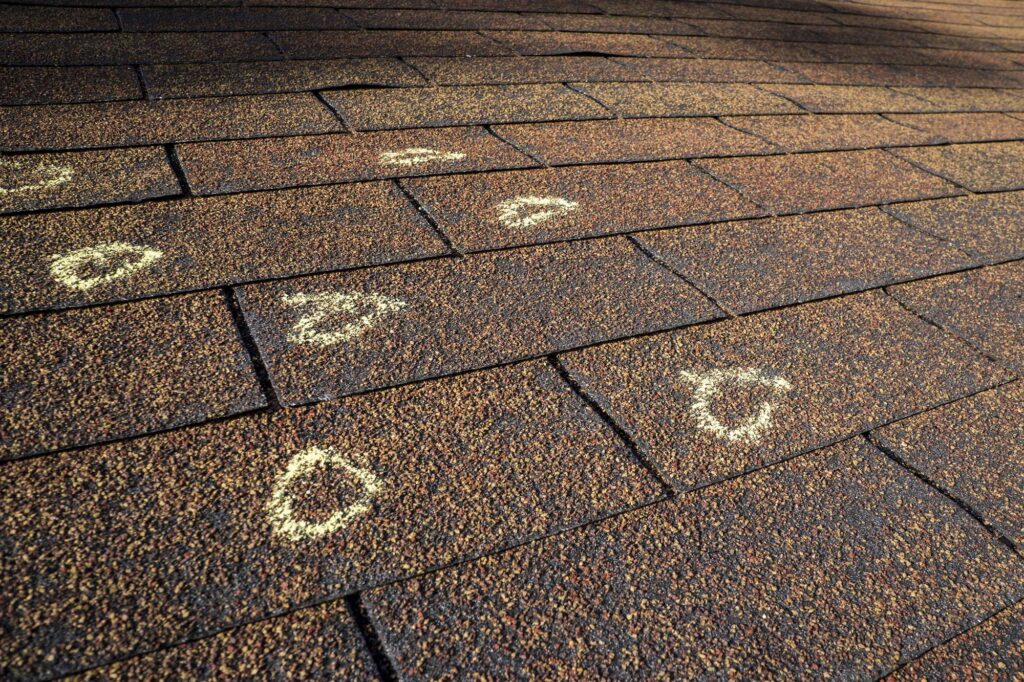
Warrenton Roofing FAQs
Here are some common questions we hear from Missouri homeowners after a hailstorm:
Do I need a roof inspection after every hailstorm?
Yes, you should schedule a roof inspection after every hailstorm. Even if there’s no visible damage from the ground, hail can bruise shingles or crack flashing in ways that aren’t immediately obvious.
How big does hail have to be to cause damage?
Hail only needs to be the size of a nickel to cause damage to your roof. Older shingles or lower-sloped roofs are especially vulnerable to impact at that size or larger.
Is it safe to delay post-storm roof repairs?
No, it’s not safe to delay roof repairs after a storm. Even small areas of damage can lead to leaks, mold, or structural issues if they’re not addressed promptly.
Does homeowner’s insurance cover hail damage?
Yes, most homeowner’s insurance policies do cover hail damage, but only if you have proper documentation and act within the required claim period set by your insurer.
Should I try inspecting the roof myself?
You can inspect the roof yourself if it’s safe, but professional inspections are strongly recommended. Trained roofers know how to spot subtle damage that’s easy to overlook and can help you build a stronger insurance claim.
Your Roadmap to Roof Recovery
Late-summer storms can leave behind more than just puddles. Spotting the signs of hail damage on a roof, getting a trusted storm inspection in Missouri, and making fast, thorough roof repairs after a storm can keep small issues from turning into major problems.
At Freedom Restoration and Roofing, we’ve helped homeowners in this region for over a decade. We’re veteran-owned, BBB A+ rated, and certified by Owens Corning to deliver quality work that holds up through every season.
Schedule your free inspection today and get ahead of the next weather event.

